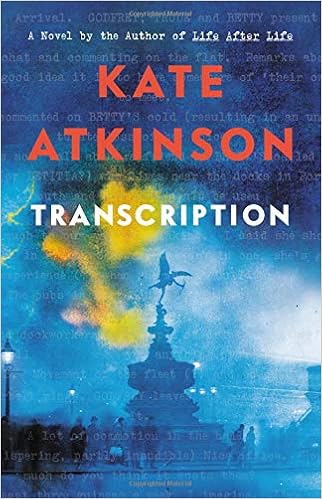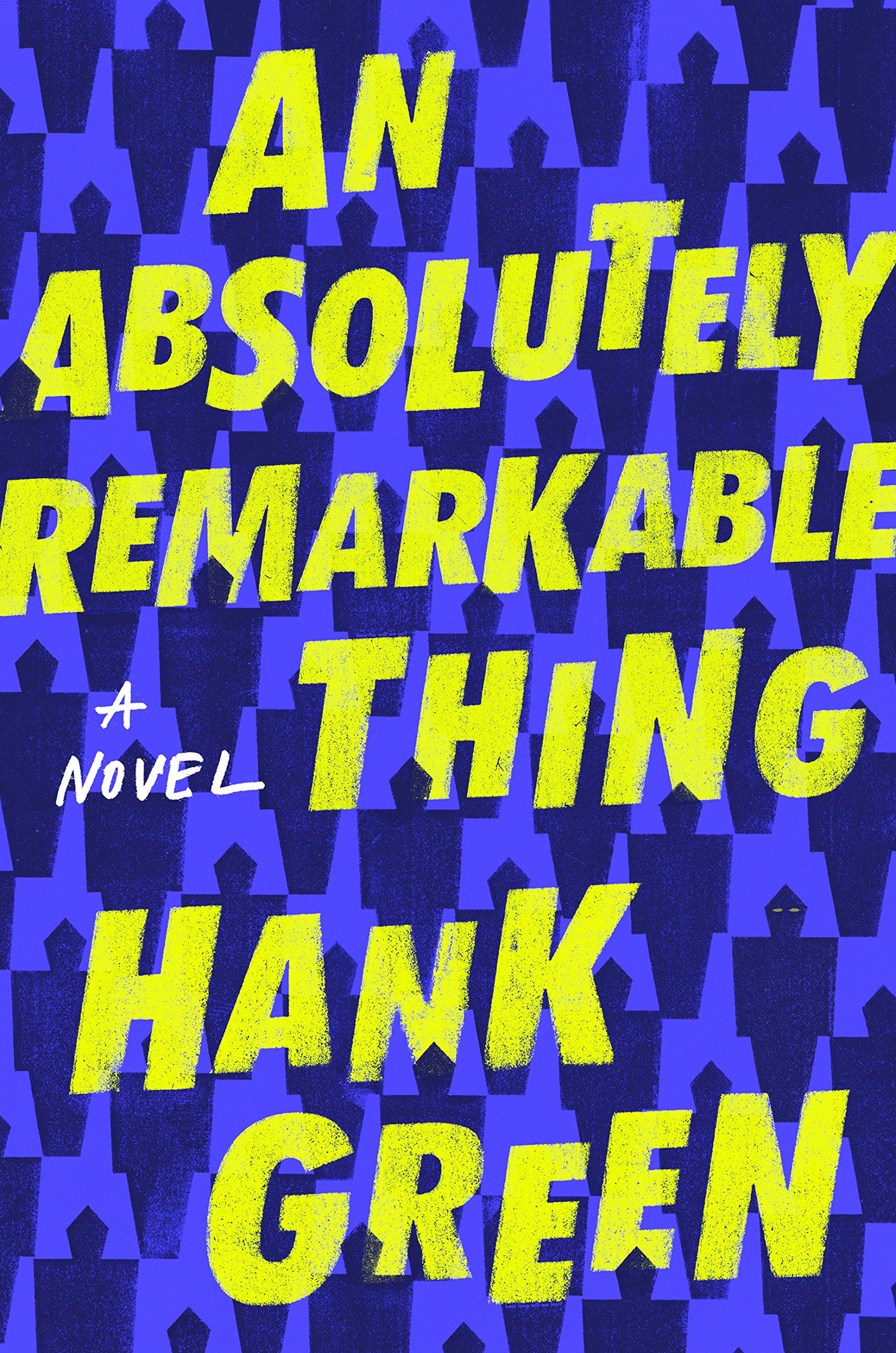 Kate Atkinson, Transcription
Kate Atkinson, TranscriptionAll y'all know I love Kate Atkinson, who wrote one of my top-ten favorite books of all time, Life After Life. So I was very eager to read her new novel, which is another novel that looks at WWII and its effect on people in England. This one is about a woman who works for British intelligence during the war, helping to run a kind of a sting operation in which Nazi sympathizers and pro-Nationalist people are suckered into meeting with intelligence officer -- they think the officers are working for the Gestapo. It's not a bad novel, mind you. It has some nice moments, and it's well enough written. But it's just an okay book, not the brilliant book I have come to expect from Atkinson.
 Virginia Bergin, Who Runs the World
Virginia Bergin, Who Runs the WorldThis book won the Tiptree Award in 2017, so of course I'm interested. It's a post-plague novel, which I'm always up for. In this one, a virus killed off most of the men about sixty years before the story opens. The surviving men live in preserves, sanctuaries; the population has plummeted; women are working to save what remains of civilization.
The book is told mainly from the point of view of River, a fifteen year old girl who wants to be an aeronautics engineer, working with planes and (she hopes, someday) space flight. Traveling home with a load of apples, River finds an injured boy on the road. Any boy outside of a sanctuary dies of the virus. But this boy doesn't. What now?
The best part of this is the world-building -- what might a world made by women and run by grandmothers look like?
Colson Whitehead, Sag Harbor
Colson Whitehead is one of the best writers working America today. If you haven't read his Underground Railroad, what are you waiting for?
As opposed to other books I've read by Whitehead, this one is neither speculative fiction nor magical realism. It's the story of one summer in the life of a young man and his friends in the Hamptons. The little town of Sag Harbor is summer colony built by upper-middle class black families, who have been coming to Sag Harbor for generations. Benji -- or Ben, as he wants to be called -- is the child of one such family.
If I was going to put this into any category, I'd call it a coming-of-age novel. But really it is more like a memoir. Told in a series of chapters that read more like interlinked short stories, the novel explores Benji's memories of an experiences in his community. Most of the novel deals with life on the island, though we do get brief references to Benji's life back in the city.
The strength of this novel is Whitehead's writing. Nothing much ever really happens, except Benji and his brother and his friends moving from childhood to adulthood, over this one summer; but Whitehead's writing keeps us engaged.
 Hank Green, An Absolutely Remarkable Thing
Hank Green, An Absolutely Remarkable ThingHank Green in one-half of the Green brothers. He and John Green are famous for their YouTube channels, and John Green, of course, is famous for his YA novels. This is Hank Green's first novel.
It's science fiction, sort of, in that it's about an extraterrestrial multidimensional robot who is sent to Earth in order to see if humans are ready for galactic civilization (more or less). But it is mainly about social media and the power of social media to create and to destroy, to shape the world, in good ways and terrible ways.
It's told from the POV of April May, a young graphic artist whose spur-of-the-moment YouTube post happens to go viral. April and her best friend Andy, who films the YouTube post, are dumped into a maelstrom of fame and fortune, which only becomes worse as April discovered (through crowd-sourcing, mostly) that the subject of her video is an alien artifact.
Hank Green knows all about being media famous, and about the power of social media to help as well as to harm. So that part of this book is really good. He also knows how social media, fame, and fortune work. That part of the book is also really good. The plot, however, is a bit weak. The alien artifact robot is an obvious MacGuffin to hang this story about social media/fame on, is what I'm saying. If you don't mind that, you'll like this book.
Emily Griffin, All We Ever Wanted
This one is also about the power of social media to destroy. Our narrator, Nina, is a member of the "obscenely rich," married to a tech millionaire. She and her son and husband live in that level of society where wealth isn't even an issue -- they have so much money that they can't spend it. Her son, at one point in the story, spends a thousand dollars on something, without even letting his parents know, much less asking their permission. Nina barely registers this act.
The plot concerns the son post a picture of a younger girl (he's 17, she's 15) on social media, a picture taken while the girl was passed out at a party. The son denies posting the picture -- he says another girl did it. Now the son is at risk of being expelled from his tony academy and perhaps losing his place at Princeton.
I would have liked this book better if (a) I had cared about any of the characters and (B) if Griffin hadn't written it like a romance novel. I mean, WTF.
Pamela Dean, The Secret Country
I love Pamela Dean, yet somehow I had never read this book -- the first in a series, apparently. It's about four young cousins who inhabit an imagined world (a la the Brontes). One day two of them find magic swords, and they end up in this imagined world. To their chagrin, they now have to deal with the plot they invented. Killing kings is fine in fiction, but when you have to be the prince, it's much more horrific.
I don't like this one as much as Tam Lin, which is one of my favorite books, but it's very readable.
Dorothy Canfield Fisher, The Homemaker
Canfield Fisher is best known for writing Understood Betsy, which is one of my favorite children's books. I'd never read anything else by her, or even known that she had written anything else. This is an interesting novel about a man and a woman who are not suited for traditional gender roles. They are both miserable -- he working at his clerk's job, she being a homemaker -- until he is injured, and she has to earn a living, while he stays home with the kids.
And voila! She loves being a clerk, and is wonderful at it. Everything that made her a terrible homemoker and stay-at-home mom makes her an excellent clerk and later store manager. Everything that made him a terrible clerk makes him a wonderful stay-at-home dad.
This was published in 1924. What I can't believe is that we're STILL fighting these battles.
Nancy Springer, The Case of the Missing Marquis
This is a "chapter book," if you know that genre -- books aimed at beginning readers. It's one of series about the younger sister of Sherlock Holmes, who runs away and works as a detective after Sherlock and Mycroft decide to send her to a boarding school so that she can be turned into a decent young lady.
Each Enola Holmes book concerns a mystery, which Enola solves; there is also a great deal of social commentary, both about poverty in London and women's rights in the 19th century.
These are well-written, and if you like kids books you'll like them. If you know a kid who likes mystery novels, or Sherlock Holmes, they'll like these.

No comments:
Post a Comment